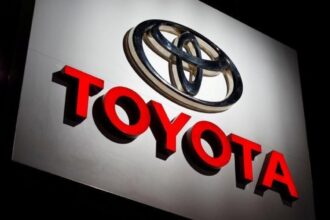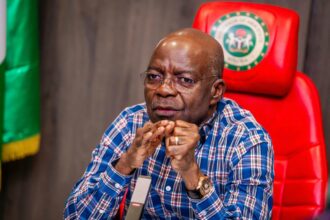
Dangote Petroleum Refinery announced yesterday that it has the capacity to fulfill the petroleum needs of ECOWAS countries.At the same time, leaders of the Economic Community of West African States (ECOWAS) described the 650,000-barrel refinery as not only an engineering marvel but also a symbol of ambition, vision, and industrial self-reliance for Africa. During a high-level visit to the advanced 650,000 barrels-per-day facility, ECOWAS Commission President H.E. Dr. Omar Alieu Touray called the refinery a symbol of hope for Africa’s future and a clear example of what the private sector can achieve in advancing regional industrialization.
The delegation included ECOWAS Commissioner for Infrastructure, Energy and Digitalisation Sediko Douka; Commissioner of Internal Services Prof. Nazifi Abdullahi Darma; Director of Private Sector/SME Dr. Tony Luka Elumelu; and Dr. Touray’s Chief of Staff Hon. Abdou Kolley, among others.
“What I have seen today gives me a lot of hope. Anyone who doubts Africa should visit here. This is exactly what our continent should be focusing on,” Touray said. “We have witnessed something beyond what I imagined, and the capacity in all areas is impressive. We congratulate Alhaji Dangote for his trust in Africa. This is something you do only when you have vision and belief in the continent, and that is what we must all encourage.”
Touray pointed out that the refinery, which produces fuel meeting Euro V standards, is vital for enabling ECOWAS to comply with the 50ppm sulphur limit for petroleum products—a standard that many imported fuels fail to meet, creating health and environmental concerns across member states.
“We are still importing fuels that don’t meet our standards, while a regional company like Dangote can exceed them,” he said. “The private sector must lead ECOWAS industrialization.” He added that now is the right time for the region to develop an industrial strategy that addresses long-standing challenges such as youth unemployment, poverty, and insecurity.
“We often talk about eradicating poverty and creating jobs for young people, but governments alone may lack the capacity to achieve these goals. Only the private sector can deliver the scale of impact needed. We must listen to them, understand how these objectives can be met, and identify the obstacles they face so they can be effectively removed. This is the realistic path to job creation and lasting prosperity across our economies.”
Aliko Dangote, President of Dangote Group, who led the ECOWAS delegation on a comprehensive tour of the refinery, discussed the challenges and achievements involved in bringing the world’s largest single-train refinery to completion. He emphasized that the Dangote Refinery is fully capable of meeting the petroleum demands of Nigeria and the entire West African region.
He restated his view that Africa’s ongoing reliance on imported goods is unsustainable and undermines economic independence.“As long as we keep importing what we can produce ourselves, we will remain underdeveloped,” Dangote said. “This refinery proves that we can build at scale and to global standards.”
“There have been many doubts suggesting that Nigeria does not produce enough to meet its own needs, let alone supply other West African countries. Now, these leaders have seen the reality firsthand and are encouraged to pursue similar large-scale industrial projects,” he added.
He noted that since starting diesel production last year, the refinery helped lower prices from N1,700 to N1,100 immediately, with further reductions since then. This price drop has positively affected many sectors, supporting industries, mining, and providing vital relief to agriculture.
Dangote also highlighted that Nigerians benefit from local refining through significantly lower petrol prices compared to neighboring countries.“In neighboring countries, the average petrol price is about \$1 per litre, which is around N1,600. Here at our refinery, petrol sells between N815 and N820. Many Nigerians don’t realize they are paying only about 55% of what others in the region pay for petrol. We also have a larger project underway, not yet announced, but Nigerians should know this refinery is built for them, and they will reap its full benefits,” he said.
Source : https://dailytrust.com/








